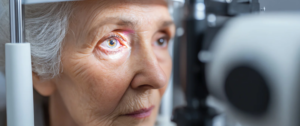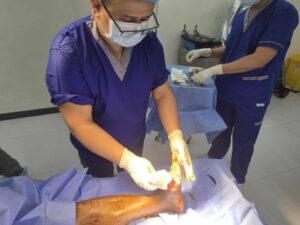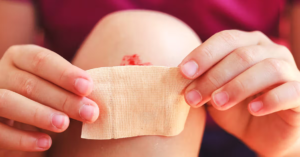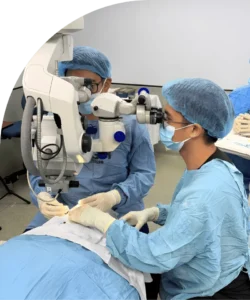Living with interstitial cystitis can feel overwhelming. The condition often brings persistent bladder pain, frequent trips to the restroom, and a constant feeling of urgency that can disrupt work, relationships, and personal time. For many people in Fishers, Indiana, finding a lasting solution means turning to specialized care. Treatment for Interstitial Cystitis Fishers at OPTCI focuses on pelvic floor physical therapy to relieve discomfort, improve bladder function, and restore quality of life.
Understanding Interstitial Cystitis
Interstitial cystitis (IC) is a chronic bladder health condition that affects people of all ages and backgrounds. Unlike a urinary tract infection, IC is not caused by bacteria and cannot be cured with antibiotics. Instead, it involves irritation and inflammation of the bladder lining, leading to a range of symptoms that can last for months or even years if left untreated. Many patients find their symptoms come and go in cycles, with periods of flare-ups and relief.
While the exact cause of IC remains unclear, factors such as bladder lining defects, pelvic floor dysfunction, nerve hypersensitivity, and certain autoimmune responses may contribute. Because IC affects multiple systems in the pelvic region, a comprehensive approach like pelvic floor physical therapy is often the most effective option.
Common Symptoms to Watch For
People seeking Treatment for Interstitial Cystitis Fishers often describe their symptoms as life-altering. Recognizing these signs early can make a significant difference in treatment outcomes:
- Persistent pelvic or bladder pain that ranges from mild discomfort to severe pressure.
- A frequent urge to urinate, sometimes every 10–15 minutes.
- Waking multiple times during the night to use the restroom.
- Pain during sexual intercourse.
- Sensitivity to certain foods, drinks, or activities that trigger symptoms.
- A heavy or full sensation in the bladder, even after urination.
Symptoms can vary from person to person, and they may change in intensity over time. Seeking professional care early helps prevent worsening discomfort and promotes faster relief.
How Interstitial Cystitis Affects Daily Life
Living with IC can affect much more than physical comfort. Many patients find the constant urge to urinate disrupts work meetings, family outings, and social events. Sleep disturbances from frequent nighttime urination can lead to daytime fatigue, irritability, and reduced concentration. Intimacy may become difficult due to pain during intercourse, creating emotional distance between partners.
The emotional toll is significant. Chronic pain and the unpredictability of flare-ups can cause anxiety, stress, and even depression. Choosing Treatment for Interstitial Cystitis Fishers at OPTCI provides both physical relief and emotional support through a patient-focused, compassionate approach.
Why Pelvic Floor Physical Therapy Helps
The pelvic floor muscles play a key role in bladder control, posture, and pelvic organ support. When these muscles are overly tight, weak, or poorly coordinated, they can contribute to IC symptoms. This muscle dysfunction may also heighten nerve sensitivity, making the bladder feel painful even when it is not full.
Pelvic floor physical therapy for IC focuses on:
- Teaching muscles to relax and release tension.
- Improving coordination between bladder and pelvic floor.
- Reducing muscle spasms that can trigger bladder pain.
- Encouraging healthy posture to reduce pelvic pressure.
- Providing self-care strategies for long-term relief.
By addressing the muscular and nerve components of IC, pelvic floor therapy can reduce symptoms and improve bladder function without invasive procedures or long-term medication use.
Treatment for Interstitial Cystitis Fishers at OPTCI
OPTCI offers a personalized approach for every patient. Your treatment plan begins with a detailed conversation about your symptoms, medical history, and previous attempts at managing the condition. From there, your physical therapist will assess pelvic floor muscle tone, strength, and coordination to identify specific problem areas.
The Treatment for Interstitial Cystitis Fishers program may include:
- Gentle manual therapy to release tight muscles and improve circulation.
- Guided stretching to reduce pelvic tension.
- Breathing techniques to calm the nervous system and lower pain sensitivity.
- Education about bladder-friendly diets and activity modifications.
- Relaxation training to help prevent flare-ups.
- Home exercises to maintain progress between sessions.
Each plan is tailored to your individual needs, and adjustments are made as you improve. The goal is not only to reduce pain and urgency but also to help you regain the confidence to return to your favorite activities without fear of sudden discomfort.
What to Expect During Your First Visit
Your first appointment for Treatment for Interstitial Cystitis Fishers at OPTCI lasts about one hour. You will have time to share your experiences, discuss triggers, and outline your goals for recovery. The physical therapist may conduct a gentle pelvic floor examination to evaluate muscle activity, but this will only proceed with your full consent and comfort.
You will also receive guidance on initial self-care strategies you can start using immediately, such as simple relaxation positions, hydration tips, and activity pacing. As your sessions progress, exercises and techniques will be gradually introduced to match your tolerance and readiness.
Why Choose OPTCI for Treatment for Interstitial Cystitis Fishers
Choosing OPTCI means working with a dedicated team that understands the complexity of IC. Patients benefit from:
- Specialists in pelvic floor therapy with advanced training.
- A private, supportive environment where concerns can be discussed openly.
- Treatment plans designed for long-term results rather than temporary fixes.
- Local convenience for residents of Fishers, Indiana, and nearby communities.
The focus is always on restoring comfort, improving bladder control, and supporting the emotional side of recovery.
Your Path to Relief
Relief from IC symptoms is possible. Many patients who start Treatment for Interstitial Cystitis Fishers notice gradual improvement in comfort, sleep quality, and bladder control within weeks. Early action can prevent symptom progression and help you return to a more active, confident lifestyle.
At OPTCI, you are not just receiving physical therapy—you are gaining a partner in your recovery journey. Every step is taken at your pace, with the understanding that IC affects both the body and the mind.
Take the First Step Toward Recovery
If you are experiencing bladder pain, urgency, or frequent urination, help is available. Treatment for Interstitial Cystitis Fishers at OPTCI offers a proven, patient-centered approach to managing symptoms and restoring quality of life. Call today to schedule your consultation and begin the journey toward comfort and confidence.
Frequently Asked Questions (FAQ)
1. How long does it take to see results from pelvic floor therapy for IC?
Most patients begin noticing changes within a few sessions, though lasting improvement often requires several weeks or months, depending on the severity of symptoms.
2. Is pelvic floor therapy for IC painful?
Therapy is designed to be gentle and within your comfort range. Your therapist will explain each step and adjust techniques to avoid aggravating symptoms.
3. Can dietary changes help with IC symptoms?
Yes, many patients benefit from avoiding bladder irritants like caffeine, alcohol, citrus, and spicy foods. Your therapist can guide you in identifying personal triggers.
4. Will symptoms return after treatment?
While IC is a chronic condition, many patients maintain improvements through ongoing self-care, home exercises, and periodic therapy sessions.
5. Do I need a referral to start treatment at OPTCI?
In many cases, no referral is required. Contact OPTCI directly to learn about your insurance or self-pay options.










